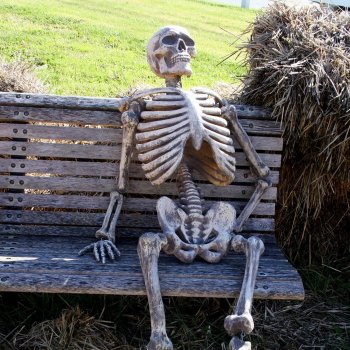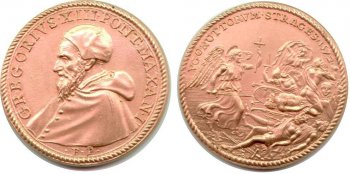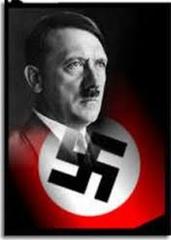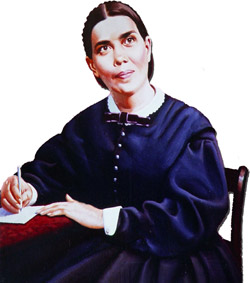TheHolyBookEnds
Well-Known Member
... continued ...... a sex crazed rogue who seduced the young women in his congregation... and frequented prostitutes
The Standards set forth by St. Paul for Bishops
Contrast the behavior of these Popes to the standards that St. Paul set forth for bishops:
“The saying is sure: If any one aspires to the office of bishop, he desires a noble task. Now a bishop must be above reproach, the husband of one wife, temperate, sensible, dignified, hospitable, an apt teacher, no drunkard, not violent but gentle, not quarrelsome, and no lover of money. He must manage his own household well, keeping his children submissive and respectful in every way; for if a man does not know how to manage his own household, how can he care for God's church? He must not be a recent convert, or he may be puffed up with conceit and fall into the condemnation of the devil; moreover he must be well thought of by outsiders, or he may fall into reproach and the snare of the devil.”(1 Tim. 3:1-7)
Some Popes have been evil, indeed. Their good works notwithstanding (John XII, for example, supported the monastic reform that began at Cluny, and the Renaissance popes commissioned great works of religious art), these Popes demonstrate that no earthly religious leader “personifies Catholicism.” The deeds of these Popes show that Gregory VII (1073-1085) was in error when he asserted, in the Dictatus Papae, that “the Roman pontiff, if he have been canonically ordained, is undoubtedly made a saint by the merits of St. Peter.”[26]
Another part of the Dictatus was “the claim that the Pope alone has the right to use the imperial insignia, or that princes shall kiss his foot;” these were derived from the Donation of Constantine,[27] a fraudulent document.
The Defenders of the Hierarchy Fail in Their Efforts
Defenders of the Hierarchy say that (a) even the worst of Popes never formally taught heresy, and (b) that the evil behavior of some Popes does not impair their authority and accuracy as teachers of the Faith. This defense fails on both counts:
1. Several Popes have indeed fallen into heresy,[28] at least for a time, and one Pope was anathematized by an Ecumenical Council.
Liberius (352-366): Initially opposed the Arian heresy (which denied the divinity of Christ), and was exiled in 355 by the Arian emperor Constantius II. Under duress, Liberius approved a semi-Arian creed that had been produced by a church synod, and excommunicated the orthodox bishop Athanasius. The Emperor allowed the Pope to return to Rome in 358. Only after the Emperor died in 361 did Liberius return to orthodoxy, reinstating Athanasius and urging all bishops to adhere to the faith that had been stated at the Council of Nicaea.
Zosimus (417-418): Initially revoked the prior Pope's condemnation of Pelagius (who promoted the heresy that men can be saved by their own efforts, without the need for divine grace). After protests from bishops in North Africa, including St. Augustine), the Pope reversed himself and restated Rome’s opposition to the heresy.
Vigilius (537-555): Vacillated between support for orthodox theology (as taught by Chalcedon– that Christ is fully God and fully man, thus having two natures) and the Monophysite heresy, which teaches that Christ has only one nature. (As with Liberius, coercion by the Emperor explained some of Vigilius’ conduct.)
Vigilius ’greatest crime had been the way he obtained the Papacy: he had aligned himself with the dissolute Empress Theodora, posed as a Monophysite sympathizer to gain her support, and went to Rome with her money to buy election as Pope. The clergy there had already elected Silverius as Pope; the Imperial authorities responded by sending Silverius into exile and declaring the Holy See to be vacant. Vigilius won then Papal election, arrested Silverius as soon as the former Pope returned to Rome, and exiled him again – leading to Silverius’ early death by starvation. As a historian of the Papacy reports, “To all intents and purposes, one Pope, and he the son of a pope, had been deposed and murdered by another.”[29] These acts raise a question: shouldn't posing as a heretic, and doing so with such lethal effect, “count” against a Pope in the same way that intentionally issuing a heretical encyclical would?
Honorius I (625-638): Adhered to Monothelitism, which held that there is only one (divine) will in Christ. After Honorius died, he was solemnly condemned as a heretic by the Third Council of Constantinople, (680-681 – the Sixth Ecumenical Council).[30] Pope Leo II (682-683) affirmed the verdict, saying, “We anathematize …Honorius, who did not attempt to sanctify this ApostolicChurch with the teaching of Apostolic tradition, but by profane treachery permitted its purity to be polluted.”[31] The Seventh Ecumenical Council (787) restated this condemnation.[32] Even though Honorius did not formally define his view as Church teaching,[33] this event clearly shows that Popes can be heretical.
2. “Teaching” involves more that putting orthodox words into an encyclical with the appropriate canonical formulae. Jesus taught by his acts as well as with his sermons. Any wise parent, teacher, or manager knows that bad example can – and usually will – negate even the most inspired or well-intentioned words (or teachings) given to those under their authority. As the Apostle James said: “faith, by itself, if it has no works, is dead.” (James 2:17). Thus, when Popes lived evil lives – and yet more, when they pursued evil policies using the power, resources, and authority associated with their office – they were teachers of evil.
Lord Acton, a Catholic historian in 19th Century England, makes this case for sober and realistic judgment of the behavior of Popes (and other powerful men):
“I cannot accept your canon that we are to judge Pope and King unlike other men, with a favourable presumption that they did no wrong. If there is any presumption it is the other way against the holders of power, increasing as the power increases. Historic responsibility has to make up for the want of legal responsibility. Power tends to corrupt and absolute power corrupts absolutely. Great men are almost always bad men, even when they exercise influence and not authority: still more when you superadd the tendency or the certainty of corruption by authority. There is no worse heresy than that the office sanctifies the holder of it.”[34]
...
Copyright 2006 - 2014 by The M+G+R Foundation. All rights reserved. However, you may freely reproduce and distribute this document as long as: (1) Appropriate credit is given as to its source; (2) No changes are made in the text without prior written consent; and (3) No charge is made for it. ..." - http://www.mgr.org/TruthAboutSomePopes.html
Last edited:







